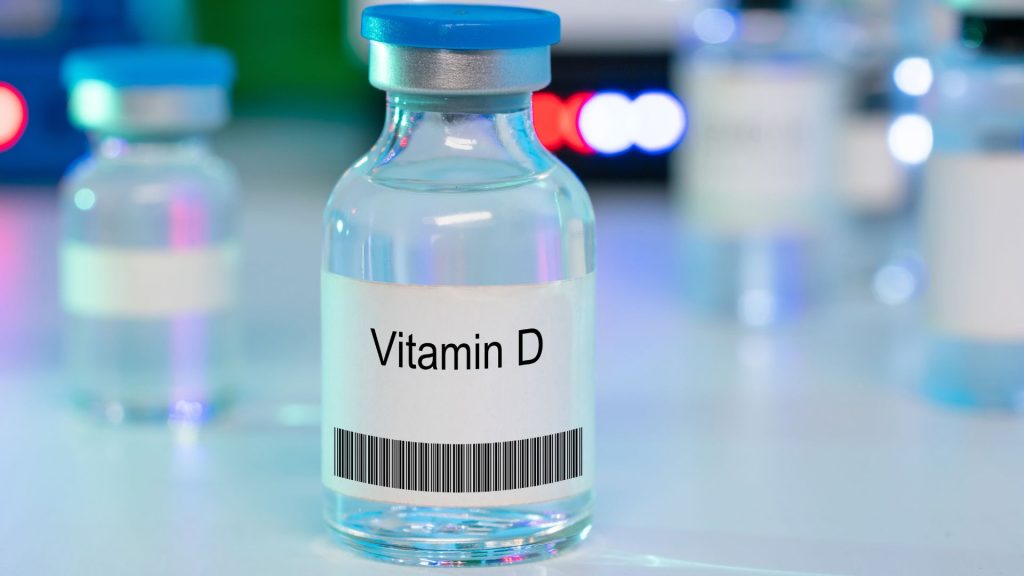6 Signs and Side Effects of Excessive Vitamin D

Introduction
Have you heard of the saying, ” Too much of everything is harmful”? Well, Vitamin D also reflects the same with our body. Although it is a paramount nutrient in maintaining overall health. But excessive intake of vitamin D can result in a condition known as vitamin D toxicity or hypervitaminosis D. This appears when there is a collection of extra vitamin D in the body, exceeding the suggested daily intake. It is better to know about the signs and side effects of this condition to control any potential adverse effects on health.
Vitamin D is mainly known for its role in stimulating bone health by aiding in the absorption of calcium and phosphorus. While it is necessary to assure an adequate intake of vitamin D, it is equally essential to understand that too much of a good thing can have negative consequences.
In this blog, we will analyze the suggested daily intake of vitamin D, the potential side effects of excessive intake, and the signs that reveal an individual may be encountering vitamin D toxicity. So let’s get on with it!
Avertisement
Signs and side-effects of Vitamin D Toxicity
Below mentioned are the side effects and signs of excessive intake of Vitamin D.
Hypercalcemia
Hypercalcemia refers to extremely high levels of calcium in the blood. Excessive vitamin D intake can lead to increased calcium absorption from the intestines, leading to elevated blood calcium levels. You can see this in the below signs:
- Extreme calcium in the blood can upset the digestive system, directing to feelings of nausea and the urge to vomit.
- Hypercalcemia can cause dehydration, leading to increased thirst.
Kidney Problems
Disproportionate vitamin D can affect kidney function due to the expanded workload placed on the kidneys in controlling calcium levels. Some signs of kidney problems associated with vitamin D toxicity include:
- The kidneys try to pass the excess calcium from the body through inflated urine production.
- High levels of calcium can contribute to the building of kidney stones, which can cause severe pain.
- Prolonged vitamin D toxicity can lead to kidney injury or impairment.
Digestive Issues
Excessive vitamin D intake can also cause gastrointestinal symptoms. These may include:
- High levels of vitamin D and calcium can irritate the digestive system, leading to abdominal discomfort.
- Extra calcium can cater to constipation, making it difficult to have regular bowel movements.
- In some cases, extreme vitamin D intake can cause diarrhea, leading to loose and watery stools.
Pain in the Bones
While vitamin D is vital for bone health, undue intake can disrupt calcium balance and cause bone-related symptoms such as:
- Excess calcium can accumulate in joints, resulting in pain and discomfort.
- Imbalances in calcium can affect muscle function, which can have a consequence in weakness and reduced strength.
Mood Swings
Vitamin D is associated with neurotransmitter regulation, and excessive intake can disrupt this balance, leading to mood-related symptoms. These may include:
- High vitamin D levels may contribute to advanced irritability and a shorter temper.
- Inequalities in neurotransmitters can influence anxiety levels, directing to feelings of unease and restlessness.
- Disturbance of neurotransmitter function can also result in depressive symptoms.
Cardiovascular Issues
While the relationship between excessive vitamin D intake and cardiovascular problems is not completely understood, some examinations suggest a potential link. Signs that may be associated with vitamin D toxicity and cardiovascular issues include:
- Extreme vitamin D levels can potentially lead to high blood pressure.
- In some cases, excessive vitamin D intake may lead to irregular heart rhythms.
Avertisement
Treatment and Prevention
It is important to know how to prevent and control vitamin D toxicity. Here are some actions for treatment and prevention:
Moderate Vitamin D Intake
The simple solution to Vitamin D toxicity is to maintain the intake of vitamin D within the suggested daily limits. The recommended daily intake of vitamin D ranges depending on age, sex, and other aspects. Conferring with a healthcare expert will help decide the suitable dosage for your specific needs.
Regular Monitoring of Vitamin D Levels
Having your blood tests regularly will help you keep track of the intake of Vitamin D. Especially if you are advised to consume vitamin D supplements. This allows you to assess your status and make changes to your supplementation if necessary.
Adjusting Vitamin D Supplements
When you are prescribed high doses of Vitamin D supplements, your body can produce excessive nutrients. To avoid this scenario, you can discontinue the supplements totally or temporarily. It depends on your specific needs. But consulting your doctor is quite helpful.
Medical Intervention for Severe Cases
In rare cases of intense vitamin D toxicity, medical intervention is necessary. This could involve hospitalization for observance and treatment. Following this, the doctors might inject you with intravenous fluids to restore hydration, medications to reduce calcium levels, or other specific interventions based on your situation.
Dietary Sources and Sunlight
The natural way to acquire vitamin D in your system is through dietary sources and sunlight exposure. Vitamin D is present in fatty fish, fortified dairy products, eggs, and mushrooms. Cozying up in sunlight with proper sun protection will help you to produce vitamin D naturally. This is the safest and most effective way to control vitamin D toxicity.
Avertisement
Conclusion
Maintaining a proportional approach to vitamin D intake can be a little tricky. But once you understand the semantics of supplementation, recommended intake and treatment, things will be easy. While vitamin D is essential for different bodily functions, including bone health and mood regulation, extreme intake can lead to negative effects. It is important to find a balance and consult healthcare professionals for guidance.
Remember, moderation is key. Avoid excessive vitamin D intake, as it can lead to toxicity and adverse health effects. By maintaining a balance and pursuing expert guidance, you can optimize your vitamin D levels and promote overall health and well-being. Dietary sources and sunshine can help you a long way if you do not have enough resources for expert advice. Just make sure that your body is feeling alright.




Responses